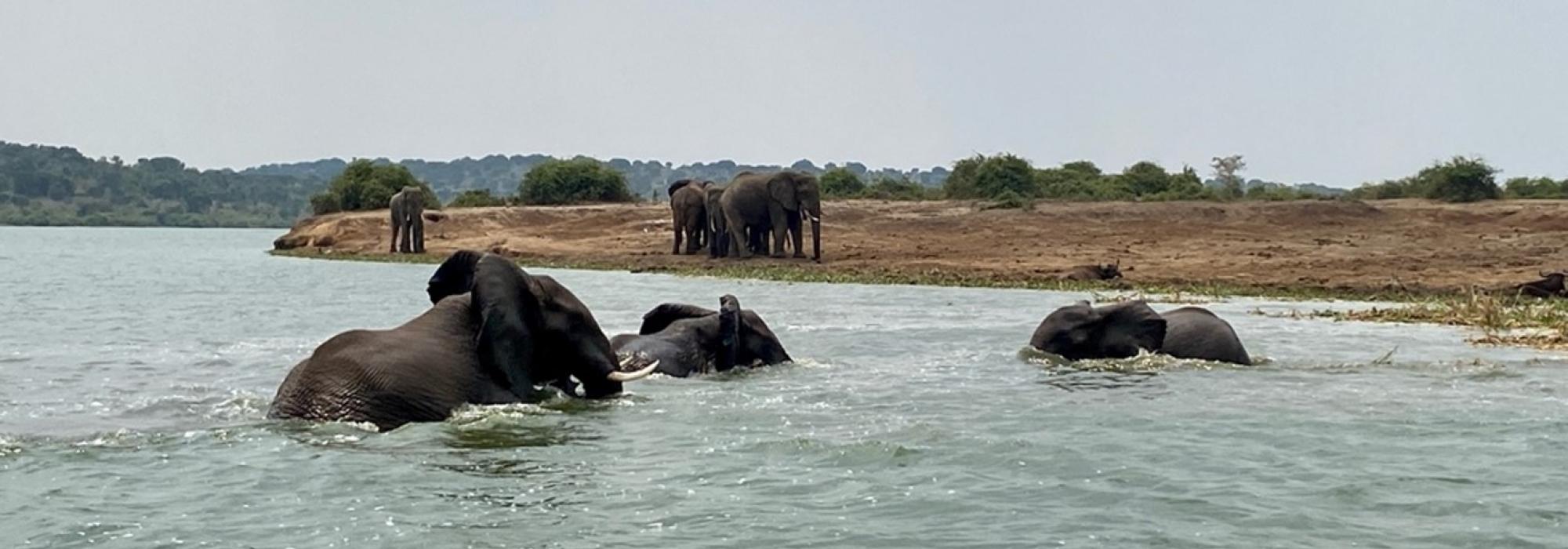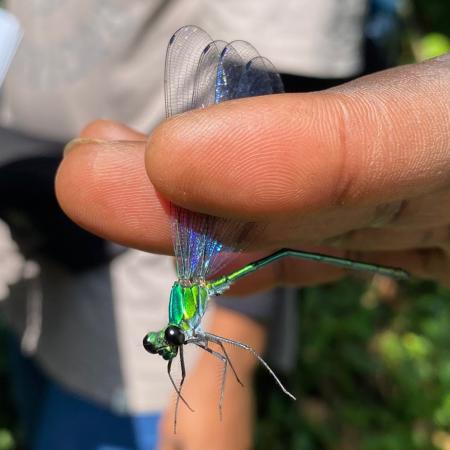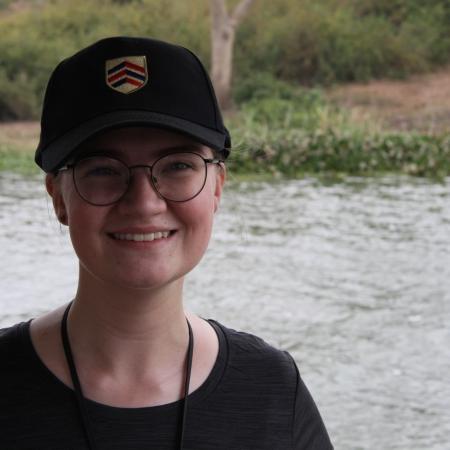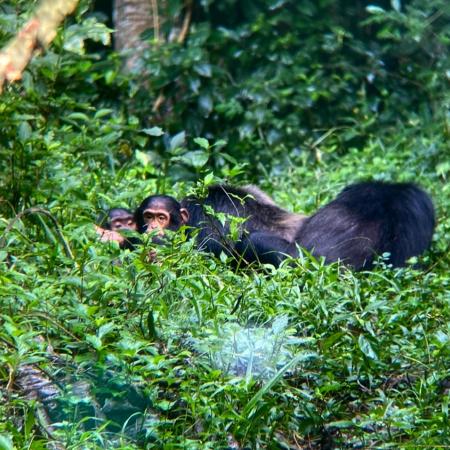
Report: Anna's experiences studying Tropical Biology in Uganda
Thanks to the generosity of the Gerry Grimstone Travel Award I was able to participate in a one-month tropical biology and conservation field course in Uganda, organised by the Tropical Biology Association (TBA). This course was largely based at Makerere University Biological Field Station in Kibale National Park, a densely forested area famous for its primates.

The first two weeks of the course introduced the participants to this ecosystem and some of the field techniques used to study it through a series of field exercises focused around three themes: forestry, ornithology, and entomology. Each exercise consisted of a couple of days of data collection in the field, designed to answer a set ecological research question, followed by a day in which students statistically analysed data from these exercises and presented their results to the rest of the participants. These field exercises developed a research skill-set that we subsequently applied to a small research project of our own devising. For this project, my group analysed the impact of baited trap colour on the diversity and identity of fruit-feeding butterfly species caught, a previously relatively understudied topic important for efficient trap design. Finally, the field course featured a 3-day excursion to Queen Elizabeth National Park, allowing us to experience a savannah ecosystem.

The TBA course proved a very rich experience, which I am sure will shape my life and career for years to come. I have long had an interest in tropical biology and conservation. However, this work has always been at a distance, based on analysis of camera-trap videos or herbarium specimens. As such, it was spectacular to see and study these tropical ecosystems in person. Further, the TBA course allowed me to develop a wide range of practical skills in tropical fieldwork. I gained experience laying transects for plant-sampling, setting up mist-nets to catch birds, and using sound-recorders and camera-traps to study animal behaviour and species composition.
Through my independent project and the several smaller field exercises I undertook during the course, I was also able to practise conceptualising research questions, planning field-work, and analysing and reporting field data. This experience complemented and built on the knowledge I have gained from my degree, taking my understanding of research and statistics from a largely theoretical level to a practical level. Finally, visiting conservation sites and hearing from local conservationists in person has, I hope, given me a deeper understanding of the possibilities and challenges facing tropical conservation on the ground. For example, I was very interested to see agroforestry, an approach I had learned about in theory during my degree, applied to real croplands, and hear the perspectives of farmers who practised it.

The TBA course also included a series of lectures from the visiting and resident academics on biological and conservation-related topics, which broadened my biological knowledge beyond what I have learnt in my degree. For instance, I was able to learn about chimpanzee behaviour and conservation from the director of the Kibale Chimpanzee Project. Other topics included the burgeoning research being done on the effect of light pollution on ecosystems, and the many controversies surrounding control of malaria-vectoring mosquitoes.
Perhaps my most important take-away from the course, however, came from the people I met. As the course participant pool consisted of 12 students from Africa, 12 from the rest of the world, I was able to meet, make friends with, learn from, and work alongside people from a wide range of backgrounds, and gain some understanding of how the study of biology and conservation varies across the globe. Learning about the diversity of biology-related projects my fellow participants were involved in at home left me with new ideas for where to take my career in the future, and how to apply the skills and knowledge gained from the TBA course to the outside world.
This course was a highly fruitful and impactful experience for me. I am deeply grateful to Merton College and the Gerry Grimstone Travel Award for enabling my participation.